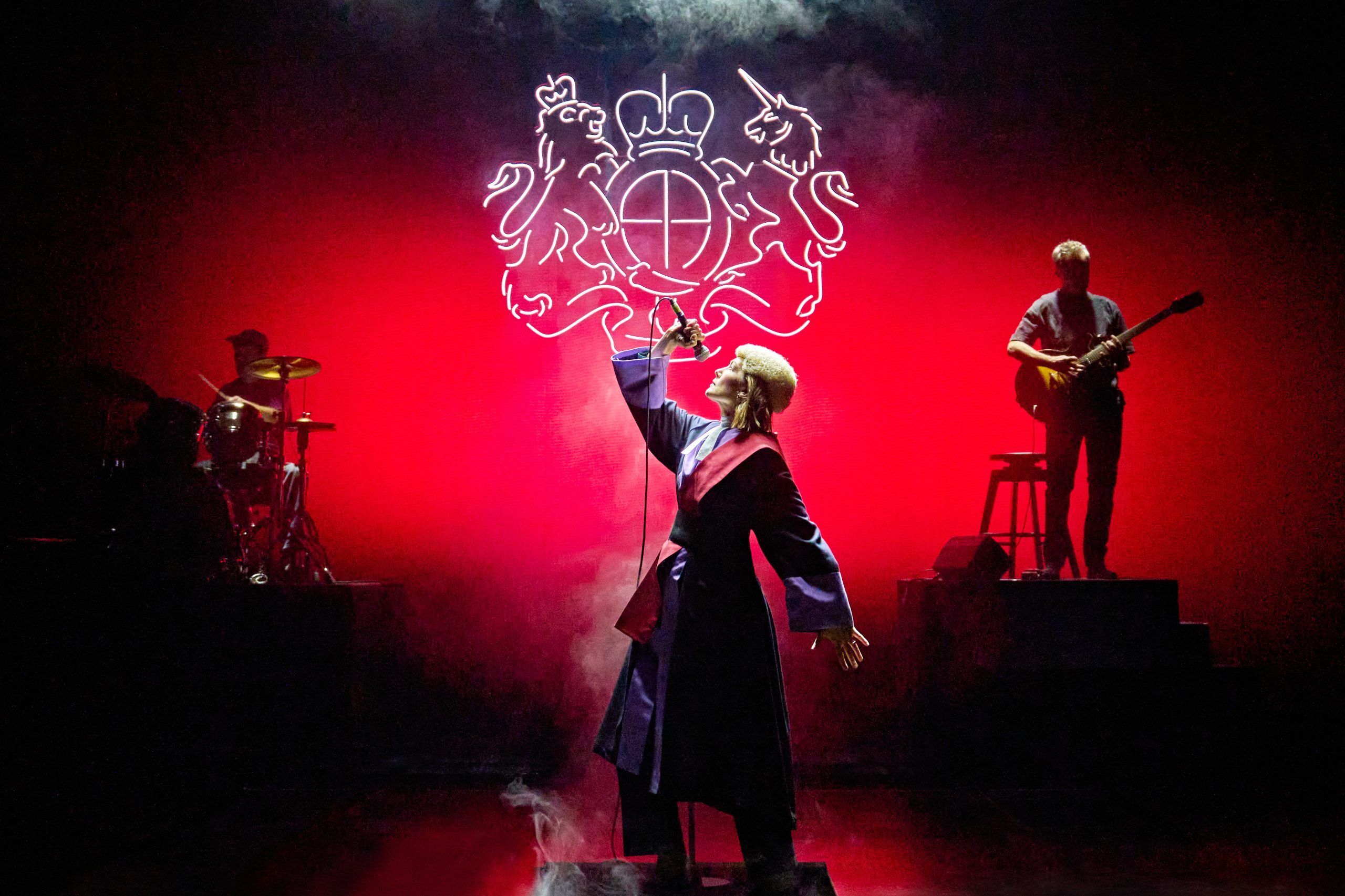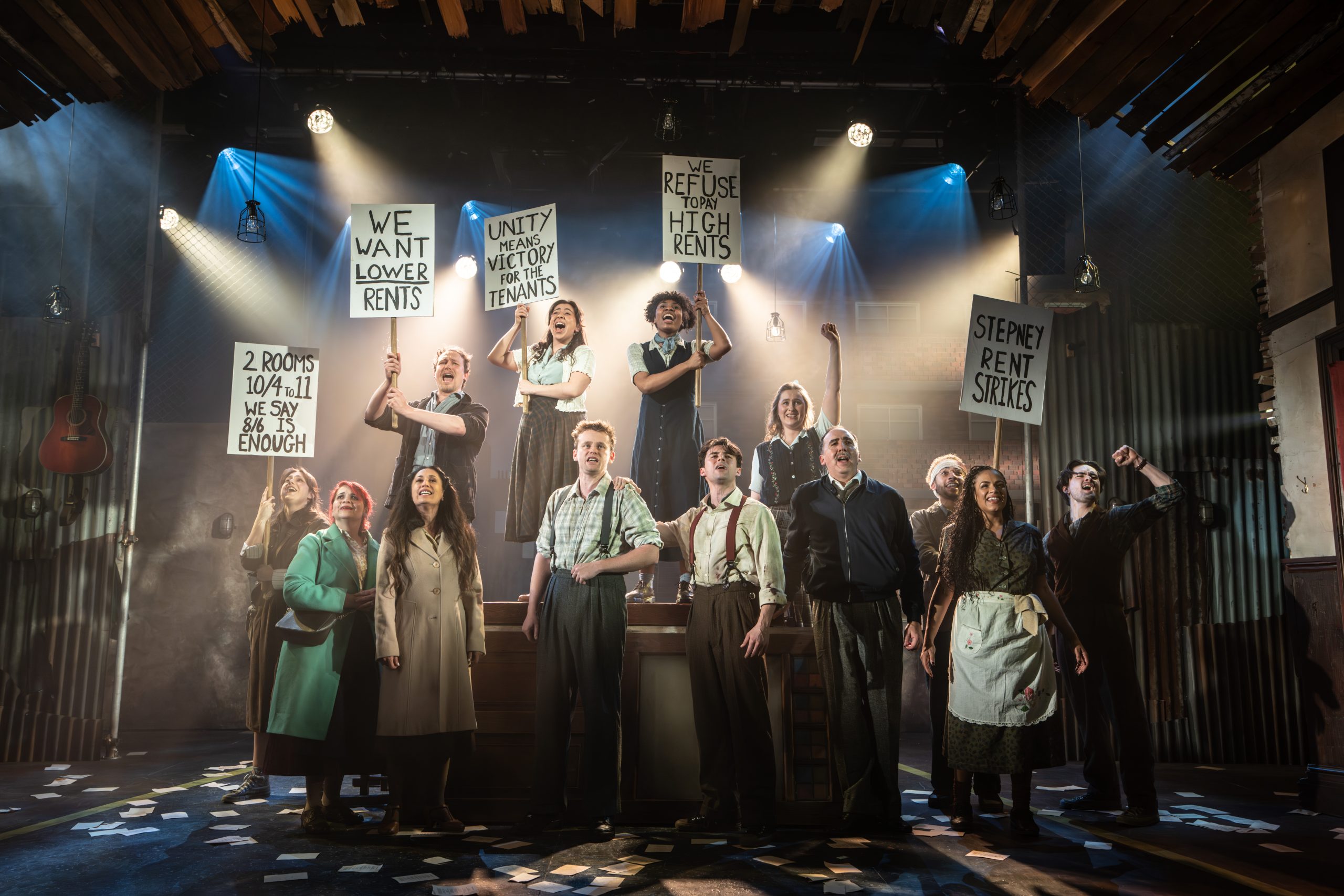In 2022, Suzie Miller was the talk of London town. Originally staged in her native Australia, her one-woman play Prima Facie and its star Jodie Comer was a hit with critics, the public and award judges. Both women went on to win an Olivier, with Comer fetching a Tony the following year for the Broadway run. Audiences looking for an alternative to sofas and streaming embraced Miller’s searing drama.
Directed by compatriot Justin Martin, Prima Facie (a Latin term used by the legal profession) was Comer’s first performance on a West End stage. As Tessa, an ambitious barrister juggling love, family – especially her mother – and everyday life while defending those accused of sexual assault, she ran around the stage with electric dynamism while railing at a legal system which is doubly tilted towards men: not only is her profession filled with the old, white, and male, but, as the damning statistics show, very few rapists end up in prison. The fast-paced story, told over 100 minutes, breezed along, taking in justifiably angry rants about male privilege, a girls’ night out and a new relationship; a dark turn, though, forced Tessa to confront the personal reality of sexual assault.
In the wake of the play’s success, the international translations came thick and fast, and soon versions of Prima Facie were being staged across Europe as well as China, Brazil and Mexico; next year, a touring version will come to the UK and Ireland. After being filmed and released through the National Theatre’s film arm NT Live, it twice topped the UK box office (something of a unique achievement for a stage play). It is on Hollywood’s radar too: Wicked’s Cynthia Erivo has been announced as the star of a film adaptation currently in pre-production. This, ladies, gentlemen, and everyone beyond the binary, is what a modern classic looks like.
So, inevitably, all eyes have been on what Miller would come up with next. Commissioned in 2023 by the NT, this latest work stars Rosamund Pike and comes with two major issues.

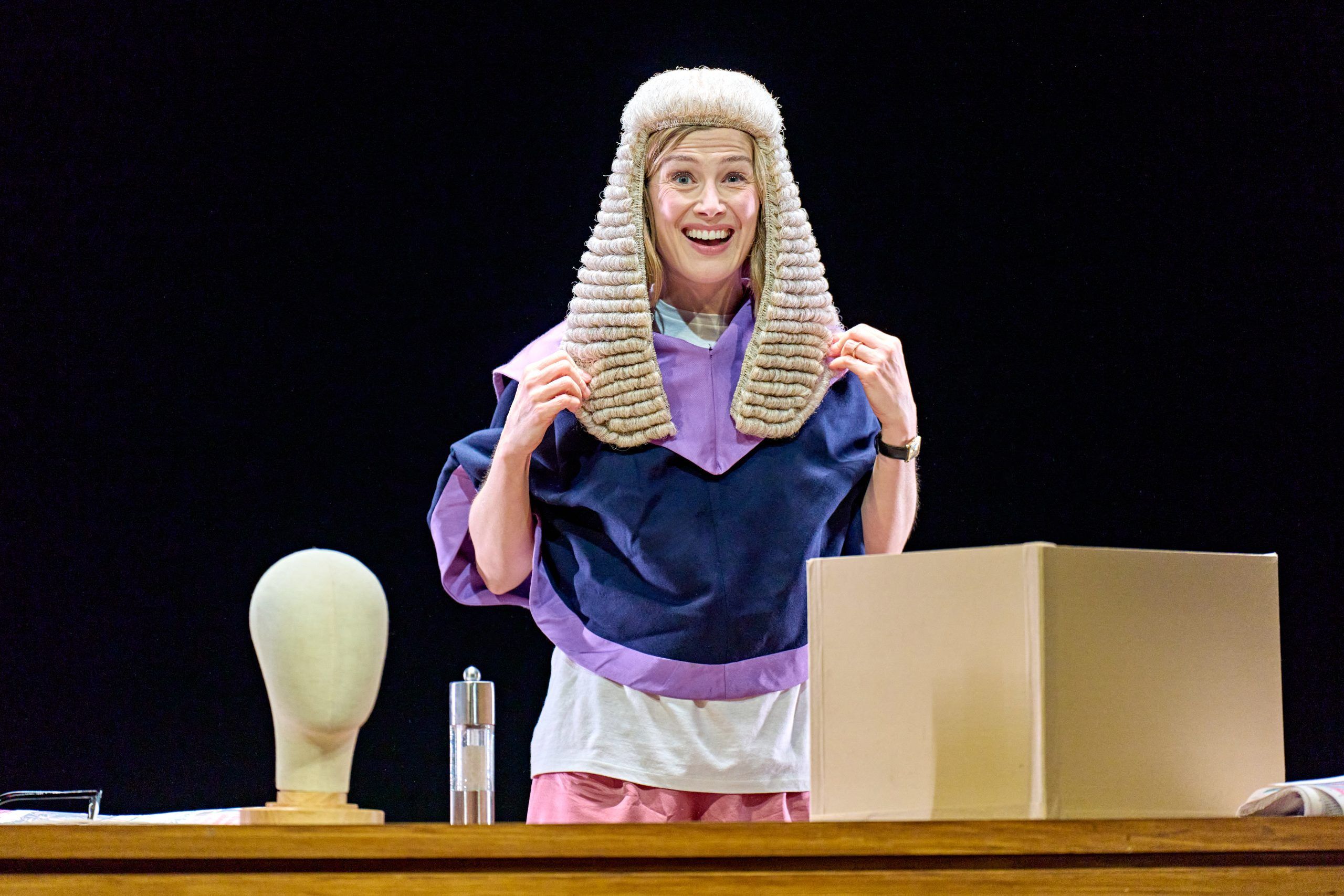
Directed by Martin again, Inter Alia (a Latin term used by the legal profession) sees Pike act on a West End stage for the first time in fifteen years. As Jessica, an ambitious judge juggling love, family – barrister husband Michael (Jamie Glover) and teenage son Harry (Jasper Talbot) – and everyday life while presiding over those accused of sexual assault. She runs around the stage with electric dynamism while railing at a legal system which is doubly tilted towards men: not only is her profession filled with the old, white, and male, but, as the damning statistics show, very few rapists end up in prison. The fast-paced story, told over 105 minutes, breezes along, taking in justifiably angry rants about male privilege, a girls’ night out and a dinner party; a dark turn, though, forces Jessica to confront the personal reality of sexual assault.
Have you spotted issue number one? Good for you.
It’s not unusual for a writer to seek inspiration in past works, even their own ones. Early in their career, they are told to write what they know about, and Miller worked as a lawyer before going into theatre and film. And it’s only natural that someone who has been writing for over twenty years would look to emulate the success of her greatest hit by creating something similar. That’s practically de rigeur nowadays (or, as Miller might say, ex more).
So let’s not worry too much that Inter Alia seems to be a slightly expanded rehash-cum-sequel of Prima Facie, albeit with blasts of rock music, cute puppets and more creative use of the stage. Or that the setup raises eyebrows at times: despite this being a family where both heads of household have intense jobs and six-figure annual incomes, the kitchen is plainer than my nose (no apparent sign of Miele, Neff or Smeg here), and there’s no domestic help to assist Jessica with cooking or ironing shirts.


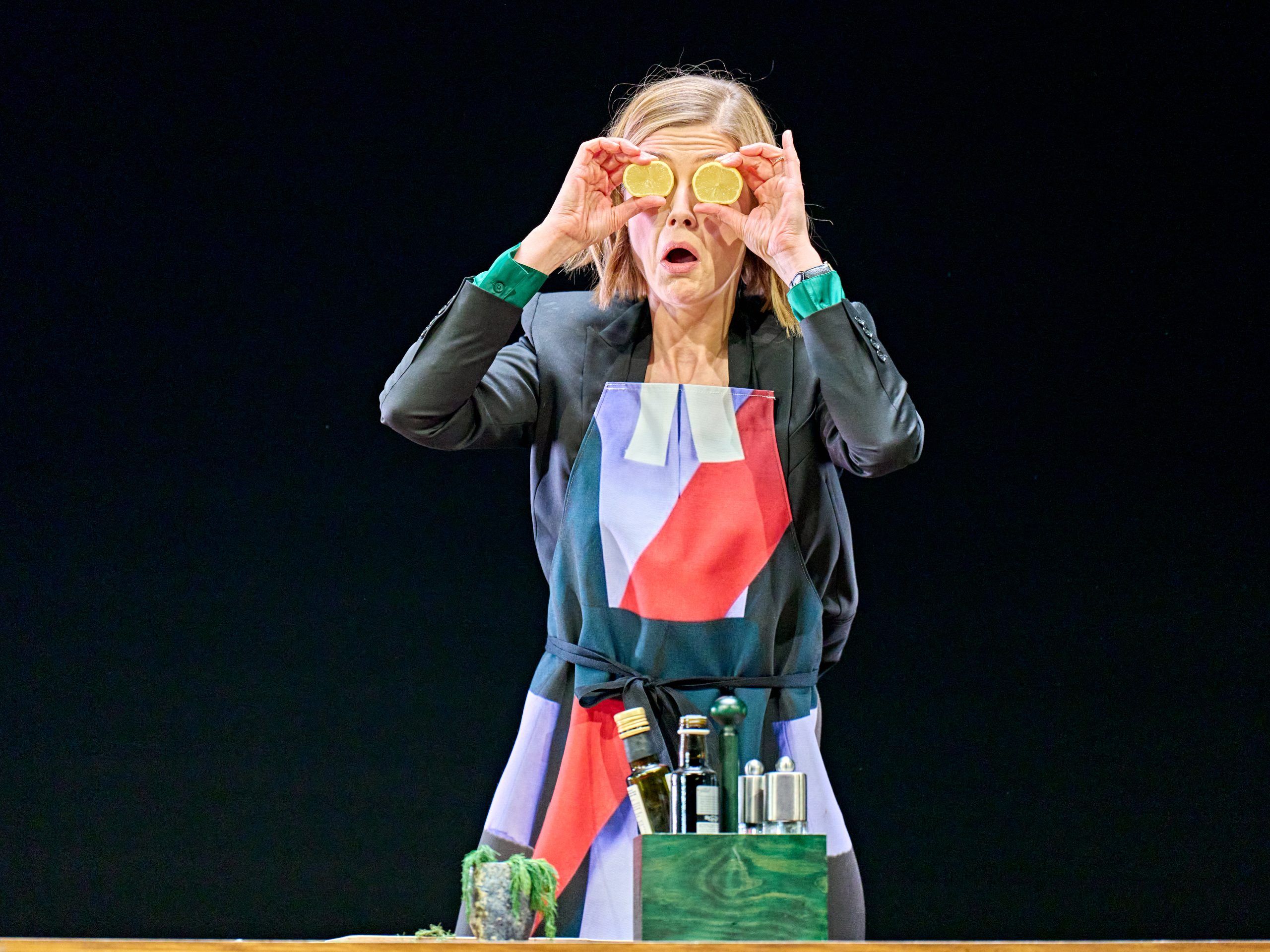
Let’s concern ourselves more with the second issue. Now, there’s no way to write about this without some spoilers, but effusive apols and #sorrynotsorry. If you want to go in without knowing what happens in the final third, we suggest avoiding all reviews for this play (not just this one).
After attending a party with classmates, Harry (Jasper Talbot) comes home one night seriously drunk and with a cut above his eye. His manner is evasive, his responses to his parents curt, and Jessica feels forced to log into his laptop to seek answers. There she finds to her horror that her son and his male friends have been busy on Snapchat exchanging hardcore filth and what appears to be revenge porn.
She is even more shocked when Harry, despite professing his innocence, is questioned by the police and eventually charged with sexually assaulting a girl from his school. As the events of the party are slowly revealed and the legal implications become starkly clear for their son and their own careers, Jessica fights with her husband over which lawyer should represent their only child: her own mentee or the most well-paid one around who happens to be Michael’s friend? (No prizes for guessing which they go with.) Hovering above this all like a hungry vulture are the thoughts: could the Harry they know and love really have raped someone; what would lead him to do something like this; and what does it say about them as parents?
Welcome, all, to posh Adolescence.

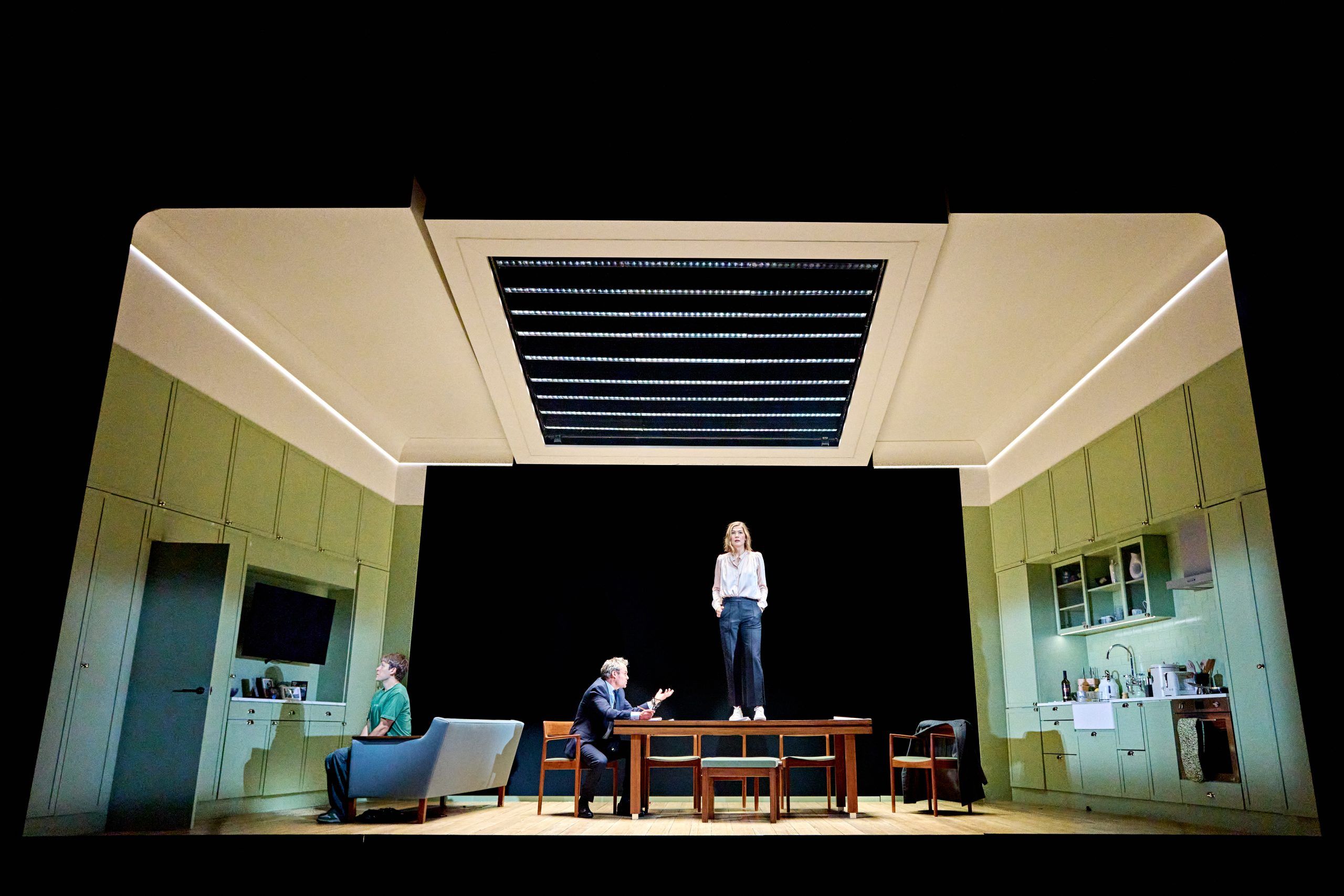
Whether this coincidence is by chance or something else, it speaks to the relative lack of dramatic creativity in Inter Alia, at least in contrast to its famous predecessor. Prima Facie was an avalanche of much-needed fresh air for the West End – a location infested with musicals, screen-to-stage adaptations and revivals of English Lit favourites – and was praised for putting thousands of younger bums on seats after the pandemic’s devastating effect on the theatre industry. This criticism doesn’t take away from Pike’s energetic and convincing performance, the sterling service provided by Glover and Talbot, or Martin’s epic ability to speed things along while keeping us aboard. Will this play emulate Prima Facie’s success? The jury’s out on that one.
Inter Alia is playing at The Lyttelton at The National Theatre, currently booking until 13 September 2025.
Get your tickets at nationaltheatre.org.uk
Words by Franco Milazzo
Photography by Manuel Harlan

